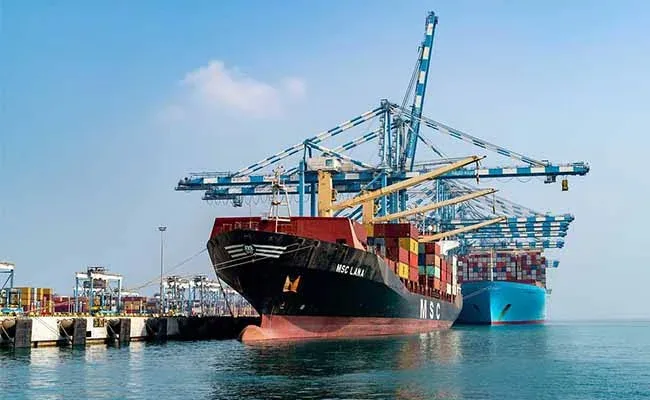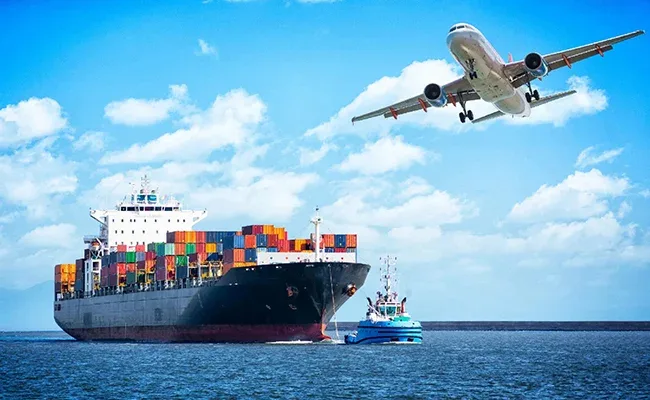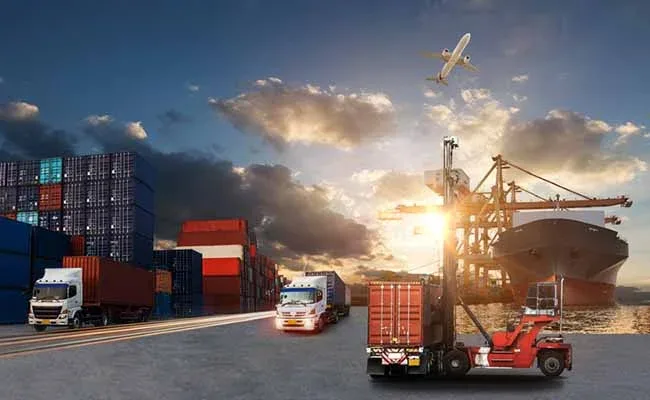How Many Shipping Routes from China to Malaysia
As two economic powerhouses in Asia, China and Malaysia share a close and dynamic trade relationship, heightening the urgency for efficient cargo movement between them. This article delves into the logistical intricacies of shipping from China to Malaysia, with our dedicated team ready to devise for you the most effective and cost-efficient transportation strategies, whether you opt for air freight or maritime container services. This specialized Malaysia-focused guide meticulously compiles all vital information, ensuring you have a comprehensive understanding of timeframes, cost structures, procedural steps, customs duties, and other associated fees throughout your shipping journey from China to Malaysia, thereby guaranteeing a seamless process.
Shipping From China To Malaysia
Identifying the Optimal Logistics Approach
Selecting the right mode of transportation for your goods from China to Malaysia is crucial to ensure a seamless logistics process. Below are the primary options to consider:
Ocean Freight: For large volumes of cargo and non-time-sensitive deliveries, ocean freight is typically the preferred choice. Depending on your cargo size and budget, you have the flexibility to opt for Full Container Load (FCL) or Less than Container Load (LCL) services.
Air Freight: When time is of the essence, air freight shines as the unparalleled solution. It is particularly suited for perishable goods or high-value, time-critical shipments, albeit at a higher cost.
Multimodal Transportation Integration: Leveraging the well-developed railway and road networks between China and Malaysia, multimodal transportation presents a balanced strategy. Compared to pure ocean freight, it combines the cost-effectiveness of sea transport with faster delivery times, offering an ideal choice for customers seeking equilibrium between time and cost.
China To Malaysia Shipping Routes
The shipping routes from China to Malaysia constitute a vital segment of the global trade network, facilitating the flow of goods between these two economically significant nations. To this end, several maritime routes are commonly employed, connecting various Chinese ports with their Malaysian counterparts. Here are some key routes
Shanghai To Port Klang (kuala Lumpur)
One of the main trade corridors links Shanghai, one of China’s busiest ports, with Port Klang, the principal port serving Malaysia’s capital, Kuala Lumpur.
Ningbo To Port Klang
Ningbo, another important Chinese port, has established shipping links with Port Klang, providing an alternative route for cargo transportation between China and Malaysia
Shenzhen To Penang Port
Shenzhen, a major port city in Guangdong Province, sees significant traffic on the route to Penang Port in Malaysia, which is crucial for trade between Southern China and Malaysia.
Hong Kong To Port Klang
As a prominent financial and logistics hub, Hong Kong offers shipping services to Port Klang, further reinforcing trade connections between these regions
Xiamen To Port Klang
The coastal city of Xiamen in Fujian Province has established routes to Port Klang, providing access to southern Malaysia from China’s southeastern coast.
Qingdao To Port Klang
Located in Shandong Province, Qingdao is a key northern Chinese port. The Qingdao to Port Klang route bolsters trade flows between Northern China and Malaysia
Guangzhou To Port Klang
Guangzhou, the provincial capital of Guangdong, serves as a major manufacturing and trading center in South China. The route from Guangzhou to Port Klang plays a pivotal role in linking these regions
Tianjin To Penang Port
Tianjin, an important northern Chinese port, has established maritime connections with Penang Port, serving as an entry point for goods into northern Malaysia
Dalian To Port Klang
Dalian, situated in Liaoning Province, provides shipping services to Port Klang, promoting trade between northeastern China and Malaysia.
Shekou (ShenZhen) To Port Klang
Shekou, located within Shenzhen, has specific shipping connections with Port Klang, offering a convenient option for trade between the region and Malaysia.

Sea Freight And Container Shipping From China To Malaysia
Marine transportation ranks among the most favored and prevalent means for conveying commodities from China to Malaysia.
Should the subsequent criteria resonate with your requirements, sea freight emerges as a highly fitting solution for your consignment:
– Proximity of your supplier to China’s key seaports.
– A cargo volume surpassing 2 cubic meters (CBM).
– Timeliness not being an imperative aspect of your delivery schedule.
Across China, we guarantee the exportation of your goods via prime ports like Shanghai, Qingdao, Shenzhen, Guangzhou, Dalian, Tianjin, Xiamen, Macao, and Hong Kong.
Our service portfolio encompasses a variety of options – door-to-door, door-to-harbor, and harbor-to-harbor – tailored to accommodate a broad spectrum of client requirements.
Employing our door-to-door facility, the cargo’s journey commences at the manufacturing unit or retail outlet in China and concludes at your specified destination in Malaysia.
Upon reaching Malaysian shores, consignments are channeled to leading maritime gateways, notably Port Klang, Johor Port, Kuantan Port, Pasir Gudang’s Tanjung Pelepas, and Bintulu Port.
Full Container Load (FCL) And Less Than Container Load (lcl) Shipping
Your cargo can be transported using either Full Container Load (FCL) or Less than Container Load (LCL) services.
When shipping from China to Malaysia, numerous factors come into play when deciding between the two options. A standard 40-foot container can accommodate up to 22 standard pallets, while a 20-foot container fits approximately 10 pallets.
If you are shipping a large volume of goods that can fill an entire container, opting for FCL becomes sensible. An added benefit of FCL is that your items are stored separately from those of other importers, reducing the risk of damage or mix-ups.
Conversely, LCL entails sharing container space with other shippers’ cargo. If you agree to this arrangement, LCL, also known as consolidated shipping, presents a more economical way to transport smaller quantities that occupy less than half the volume of a full container.
Considerations For LCL (less Than Container Load) Shipping
Opting for LCL shipping implies that your goods will share container space with those from other companies. Consequently, this might lead to a longer delivery timeframe due to the additional handling involved in consolidating and deconsolidating the shipments.
Prior to departure, your cargo will be held in a consolidation warehouse in China until it’s time to be loaded for shipment. Upon arrival in Malaysia, it will be transferred to a deconsolidation warehouse before being forwarded to your designated address. This process, while cost-effective for smaller shipments, requires careful coordination and may introduce potential delays due to the multiple handling stages. It’s essential to factor in these aspects while planning your logistics to ensure a smooth delivery process.
Considerations For FCL (full Container Load) Shipping
FCL shipping involves hiring an entire container exclusively for your cargo.
This option becomes the most economically viable when your shipment is substantial enough to either fill or nearly fill a container. Not only does it offer better value for large volumes, but it is also a quicker method compared to LCL, as there is no need to consolidate or deconsolidate your goods with those of others, reducing handling time and potential risks of damage or mix-ups.
Your container remains sealed throughout the journey, providing an added layer of security. It will only be opened if selected for inspection by customs officials, otherwise staying sealed until it reaches your designated address or final destination. This direct transfer minimizes handling and the potential for delays, making FCL a preferred choice for those shipping large quantities or sensitive goods where speed and security are paramount. However, it’s crucial to accurately estimate your cargo volume to ensure that utilizing a full container is indeed the most efficient and cost-effective solution for your shipping needs.
Refrigerated Container Shipping From China To Malaysia
Certain commodities invariably require a controlled environment throughout transit. To ensure optimal preservation, refrigerated containers, also known as reefers, maintain a constant preselected temperature. A wide array of products, including chemicals, perishable foods, and more, are specifically shipped via this method to preserve their quality and freshness. Bassington Shipping excels in arranging refrigerated container bookings for you from all cities in China to destinations across Malaysia, guaranteeing the integrity of your temperature-sensitive cargo every step of the way.
China To Malaysia Air Freight
We have established an extensive and dedicated network of air cargo carriers, ensuring daily and regular flights from China’s major aviation hubs to any global air destination, with a particular focus on Southeast Asian countries including Malaysia, to cater to a wide range of air freight requirements.
Our NEW SPEED air freight service from China to Malaysia presents a secure and dependable solution for all your air transportation needs, encompassing time-critical and high-value commodities alike.
Our shipping options encompass a variety of choices, including airport-to-airport, door-to-door, airport-to-door, and door-to-airport services, ensuring flexibility to match your specific requirements.
With us, every step of the journey is meticulously managed, assuring that your cargo arrives precisely when and where you need it. Standard transit time for air shipments from China to Malaysia typically ranges from 3 to 7 days, though this may fluctuate subject to seasonal demands and market traffic fluctuations throughout the year. Our extensive experience in the field equips us to expertly navigate these logistical dynamics for you.
Charter services provide peace of mind with bespoke solutions and a comprehensive list of shippable items. We can arrange and transport various goods, such as:
– Consumer products
– Valuable cargo
– Sensitive items, including hazardous materials, perishables, or fragile goods
– Urgent shipments
– Medical supplies and humanitarian relief aid
– Heavy and oversized equipment
– Automotive, aircraft, and marine parts
In terms of weight capacity, we offer a flexible range starting from 10,000 pounds (approximately 4,500 kilograms) up to 45,000 pounds (around 20,000 kilograms), with options for transport in crates, boxes, on pallets, or as loose cargo. Our partial and full charter services cater to loads weighing between 10,000 pounds (4,500 kilograms) to 45,000 pounds (20,000 kilograms), adaptable for loading onto pallets, skids, crates, or as bulk cargo, thereby accommodating a broad spectrum of shipping needs with precision and efficiency.

What Is The Cost Of Full Container Load (FCL) Sea Freight From China To Malaysia?
To determine the exact cost for a Full Container Load (FCL) shipment from China to Malaysia, it’s crucial to consider the multitude of variables outlined, as they collectively influence the final price. While providing a specific figure without these details is not feasible, understanding the contributing factors is key:
Container Type: Standard sizes are 20-foot and 40-foot containers, with specialized containers like refrigerated ones costing more.
Cargo Volume and Weight: Filling a container to its capacity is more cost-effective than shipping a partially filled one since you pay for the space regardless.
Distance and Route: Longer distances generally mean higher costs, depending on the specific ports involved.
Port Charges: Fees such as Terminal Handling Charges (THC), documentation fees, and security charges add to the total.
Fuel Costs: Fluctuating oil prices can impact rates, with some carriers adjusting fees accordingly.
Carrier Pricing and Service Levels: Comparing quotes from different providers is essential to secure competitive pricing.
Seasonal Factors: Peak seasons and holidays can increase demand, leading to higher rates.
Currency Exchange Rates: Transactions between CNY and MYR are subject to exchange rate fluctuations.
Additional Services: Optional services like door-to-door delivery, insurance, and customs clearance add extra costs.
Given the dynamic nature of these factors, contacting a freight forwarder or shipping company directly for a current quote is recommended. They can provide an up-to-date estimate based on your specific cargo details, desired services, and the prevailing market conditions.

Customs Clearance For Sea Freight From China To Malaysia
Shipping goods from China to Malaysia necessitates customs clearance procedures in both the country of origin (China) and the destination country (Malaysia). Customs clearance is a vital aspect of international transportation, ensuring goods adhere to regulatory requirements, are accurately declared, and assessed for duties and taxes. Below is an overview of the customs clearance process for shipments from China to Malaysia:
Document Preparation
Commercial Invoice: Provide a detailed invoice containing information about the buyer, seller, goods description, quantity, unit price, total value, currency, payment terms, and delivery conditions.
Packing List: Include a packing list detailing the contents of each package, including the weight and dimensions of each item.
Bill of Lading (B/L) or Air Waybill (AWB): These documents serve as evidence of the contract of carriage between the shipper and carrier. B/L is used for sea freight, while AWB is for air freight.
Certificate of Origin: If applicable, submit a certificate of origin to prove the country of origin of the goods. This document may be required to claim preferential tariffs under trade agreements.
Customs Declaration Forms: Complete the necessary customs declaration forms required by both China and Malaysia.
Duties And Taxes
Familiarize yourself with the tariffs and taxes applicable to your specific goods. Malaysia imposes import duties and taxes on various goods, with rates varying by product type.
Malaysia also levies Goods and Services Tax (GST) on imported goods. The GST rate and applicability may change, so ensure you are informed about current regulations.
Import Licenses And Permits
Some goods may require import licenses or permits to enter Malaysia. Secure any necessary approvals from Malaysian authorities before shipping your goods.
Clearance Procedure
In China, clearance usually occurs at the port of departure, with your shipping provider or freight forwarder assisting in the process.
In Malaysia, clearance takes place at the destination port or airport. You or your customs broker must submit the required documents to Malaysian customs authorities.
Inspection and Verification
Malaysian customs authorities may inspect and verify imported goods to confirm conformity with submitted documents.
Payment Of Duties And Taxes
After customs assessment, you must pay the duties and taxes prior to the release and delivery of your goods.
Customs Release And Delivery
Once cleared and taxes paid, your goods are released and transported to their final destination in Malaysia.
Record Keeping
Retain all customs-related documents and transaction records for your own reference and potential audits.

